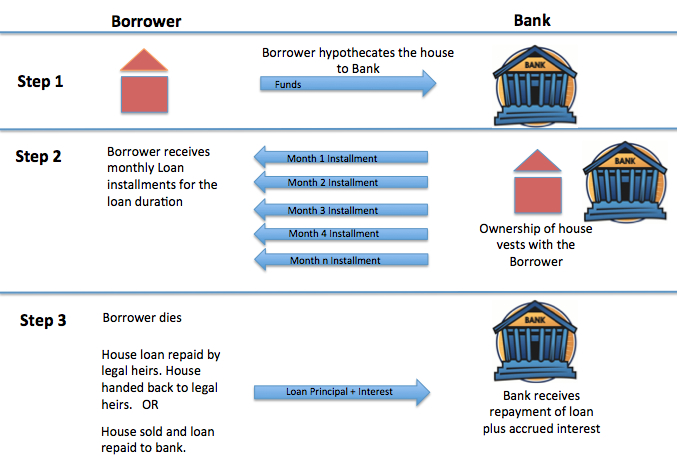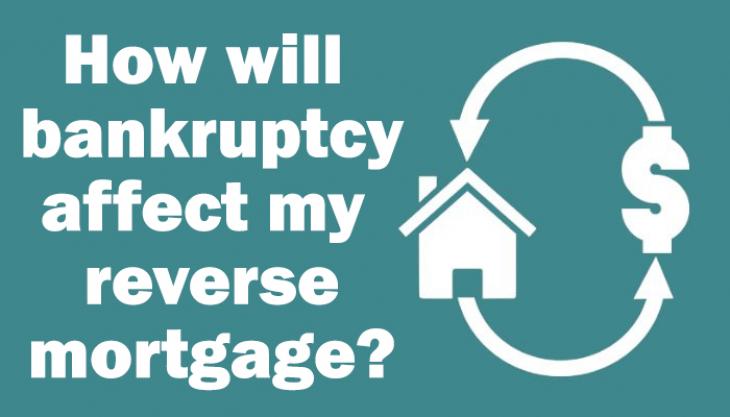Why You Should Purchase Reverse Mortgage to Secure Your Future
Why You Should Purchase Reverse Mortgage to Secure Your Future
Blog Article
Unlock Financial Liberty: Your Guide to Purchasing a Reverse Mortgage
Understanding the details of reverse home mortgages is essential for house owners aged 62 and older seeking financial liberty. This one-of-a-kind economic tool allows seniors to utilize their home equity, transforming it right into accessible money for numerous requirements, from medical care to lifestyle improvements. Navigating the eligibility prices, requirements, and benefits can be intricate. As you consider this choice, it is important to understand not only just how it works but additionally the ramifications it might carry your monetary future. What are the key variables you should evaluate prior to making such an impactful choice?
What Is a Reverse Mortgage?

The fundamental appeal of a reverse home mortgage depends on its potential to enhance financial versatility throughout retirement. Property owners can utilize the funds for different objectives, consisting of medical costs, home renovations, or daily living prices, hence providing a safety and security net throughout a critical point of life.
It is vital to recognize that while a reverse mortgage permits for increased capital, it also decreases the equity in the home in time. As passion gathers on the outstanding lending balance, it is essential for prospective consumers to very carefully consider their lasting economic plans. Consulting with a financial consultant or a reverse mortgage professional can offer valuable understandings into whether this alternative straightens with an individual's monetary goals and conditions.
Eligibility Needs
Understanding the eligibility demands for a reverse home loan is important for home owners considering this monetary choice. To qualify, candidates should go to the very least 62 years old, as this age requirement permits elders to access home equity without regular monthly home loan payments. In addition, the homeowner must occupy the house as their main home, which can consist of single-family homes, specific condos, and made homes meeting details guidelines.
Equity in the home is one more necessary need; home owners usually require to have a considerable quantity of equity, which can be determined via an appraisal. The quantity of equity offered will directly influence the reverse home mortgage quantity. In addition, candidates should show the capacity to maintain the home, including covering residential or commercial property tax obligations, property owners insurance, and upkeep expenses, making certain the residential or commercial property continues to be in good problem.
In addition, possible borrowers need to undergo a financial assessment to review their income, credit report, and total economic situation. This evaluation helps loan providers figure out the candidate's ability to meet recurring commitments related to the residential property. Meeting these needs is vital for safeguarding a reverse home loan and making sure a smooth economic shift.
Benefits of Reverse Home Loans
Various advantages make reverse home mortgages an attractive option for seniors seeking to improve their financial adaptability. purchase reverse mortgage. Among the key benefits is the capacity to transform home equity into cash money without the need for regular monthly home loan look at this site settlements. This function allows seniors to gain access to funds for numerous demands, such as clinical expenses, home improvements, or daily living prices, thereby alleviating monetary stress and anxiety
Additionally, reverse home loans supply a safety and security net; elders can proceed to live in their homes for as lengthy as they meet the loan needs, fostering stability throughout retirement. The profits from a reverse home mortgage can also be made use of to delay Social Protection advantages, potentially causing higher payouts later on.
Furthermore, reverse home mortgages are non-recourse fundings, indicating that debtors will never owe even more than the home's value at the time of sale, safeguarding them and their beneficiaries from economic liability. Last but not least, the funds gotten from a reverse mortgage are generally tax-free, adding another layer of economic relief. Overall, these advantages placement reverse home mortgages as a sensible service for senior citizens looking for to improve their monetary situation while preserving their valued home environment.

Expenses and Costs Included
When thinking about a reverse home mortgage, it's vital to be mindful of the various expenses and fees that can impact the overall financial photo. Comprehending these expenses is important for making an informed decision concerning whether this financial item is ideal for you.
Among the main costs connected with a reverse home loan is the source fee, which can differ by lending institution but usually varies from 0.5% to 2% of the home's assessed value. Furthermore, property owners need to anticipate closing expenses, which might consist of title insurance, evaluation charges, and credit rating record fees, commonly totaling up to several thousand bucks.
An additional significant expenditure is mortgage insurance premiums (MIP), which protect the lender versus losses. This fee is typically 2% of the home's worth at closing, with a recurring yearly premium of 0.5% of the remaining financing equilibrium.
Lastly, it is necessary to consider ongoing expenses, such as real estate tax, house owner's insurance, and upkeep, as the borrower continues to be in charge of these costs. By carefully evaluating these fees and prices, home owners can much better examine the economic ramifications of going after a reverse Bonuses mortgage.
Steps to Begin
Starting with a reverse mortgage includes numerous vital actions that can assist simplify the process and guarantee you make educated decisions. Evaluate your monetary situation and identify if a reverse mortgage aligns with your lasting objectives. This consists of assessing your home equity, existing financial obligations, and the need for extra revenue.
Following, study various lending institutions and their offerings. Search for trusted organizations with investigate this site positive testimonials, transparent fee structures, and affordable rate of interest. It's important to contrast conditions to locate the best suitable for your requirements.
After selecting a lending institution, you'll require to complete a detailed application procedure, which generally needs documentation of revenue, assets, and building details. Involve in a therapy session with a HUD-approved therapist, who will provide understandings right into the implications and duties of a reverse home mortgage.
Conclusion
In final thought, reverse home mortgages offer a viable option for elders looking for to boost their economic security during retirement. By transforming home equity right into available funds, property owners aged 62 and older can deal with numerous economic requirements without the stress of regular monthly payments. Understanding the details of qualification, advantages, and connected costs is necessary for making educated decisions. Cautious factor to consider and preparation can cause enhanced high quality of life, ensuring that retired life years are both safe and satisfying.
Recognizing the complexities of reverse mortgages is vital for homeowners aged 62 and older seeking financial flexibility.A reverse home loan is a monetary product made primarily for house owners aged 62 and older, permitting them to convert a part of their home equity into cash - purchase reverse mortgage. Consulting with a reverse home mortgage or an economic consultant professional can offer beneficial understandings into whether this option aligns with a person's financial goals and conditions
In addition, reverse home mortgages are non-recourse loans, suggesting that debtors will never ever owe more than the home's worth at the time of sale, shielding them and their beneficiaries from monetary obligation. In general, these advantages position reverse home loans as a useful solution for elders looking for to improve their economic situation while keeping their valued home setting.
Report this page